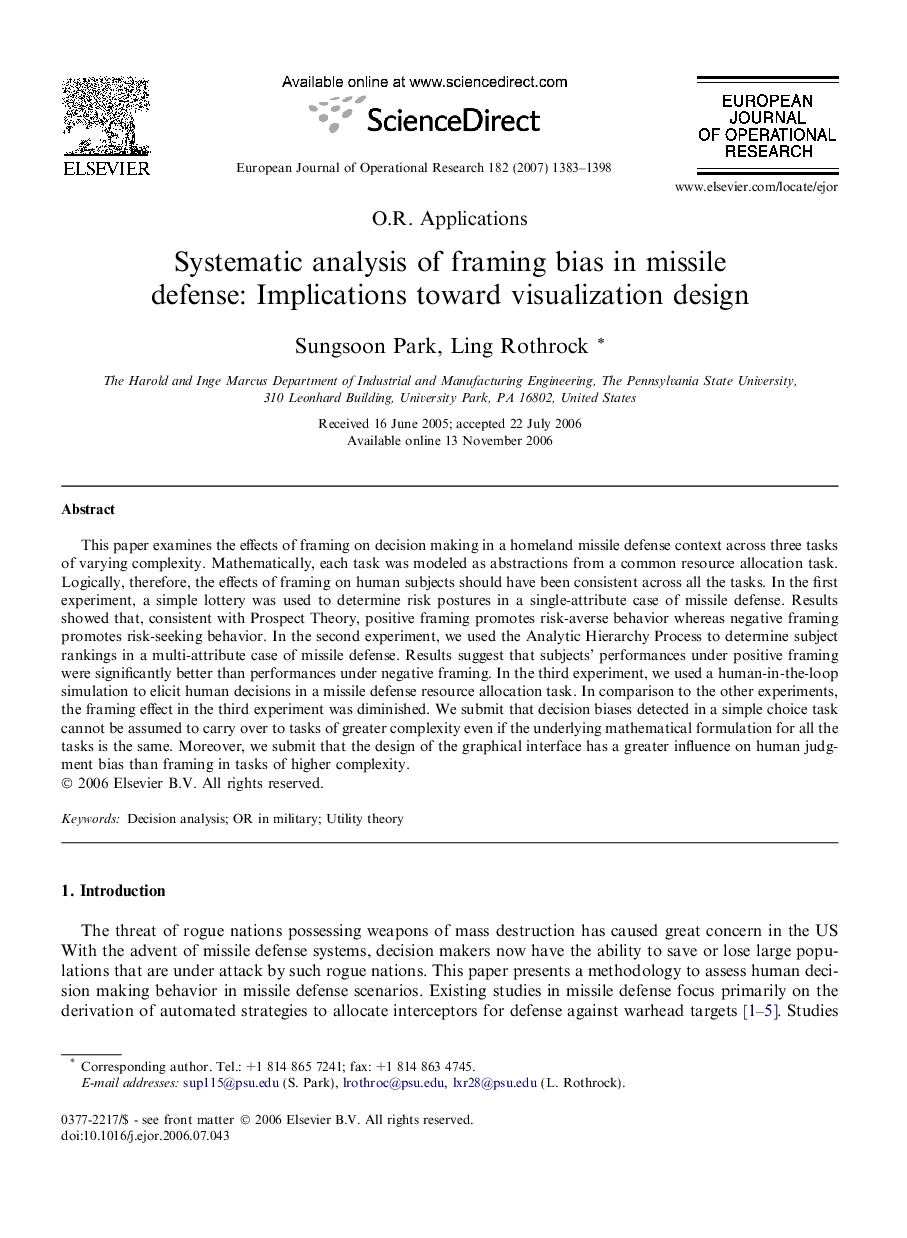| Article ID | Journal | Published Year | Pages | File Type |
|---|---|---|---|---|
| 483000 | European Journal of Operational Research | 2007 | 16 Pages |
This paper examines the effects of framing on decision making in a homeland missile defense context across three tasks of varying complexity. Mathematically, each task was modeled as abstractions from a common resource allocation task. Logically, therefore, the effects of framing on human subjects should have been consistent across all the tasks. In the first experiment, a simple lottery was used to determine risk postures in a single-attribute case of missile defense. Results showed that, consistent with Prospect Theory, positive framing promotes risk-averse behavior whereas negative framing promotes risk-seeking behavior. In the second experiment, we used the Analytic Hierarchy Process to determine subject rankings in a multi-attribute case of missile defense. Results suggest that subjects’ performances under positive framing were significantly better than performances under negative framing. In the third experiment, we used a human-in-the-loop simulation to elicit human decisions in a missile defense resource allocation task. In comparison to the other experiments, the framing effect in the third experiment was diminished. We submit that decision biases detected in a simple choice task cannot be assumed to carry over to tasks of greater complexity even if the underlying mathematical formulation for all the tasks is the same. Moreover, we submit that the design of the graphical interface has a greater influence on human judgment bias than framing in tasks of higher complexity.
